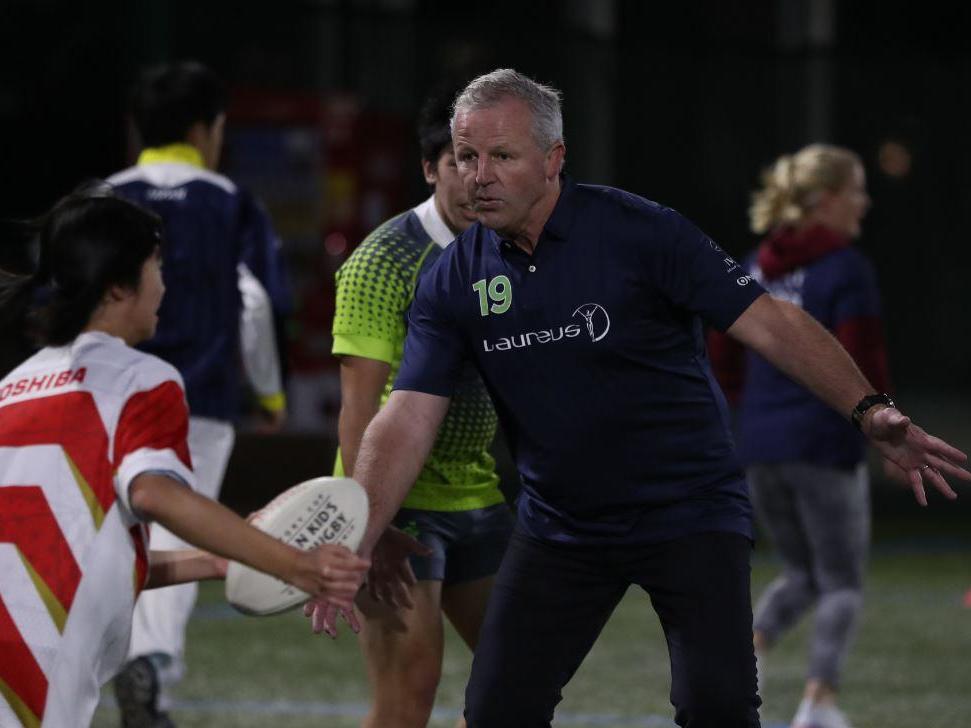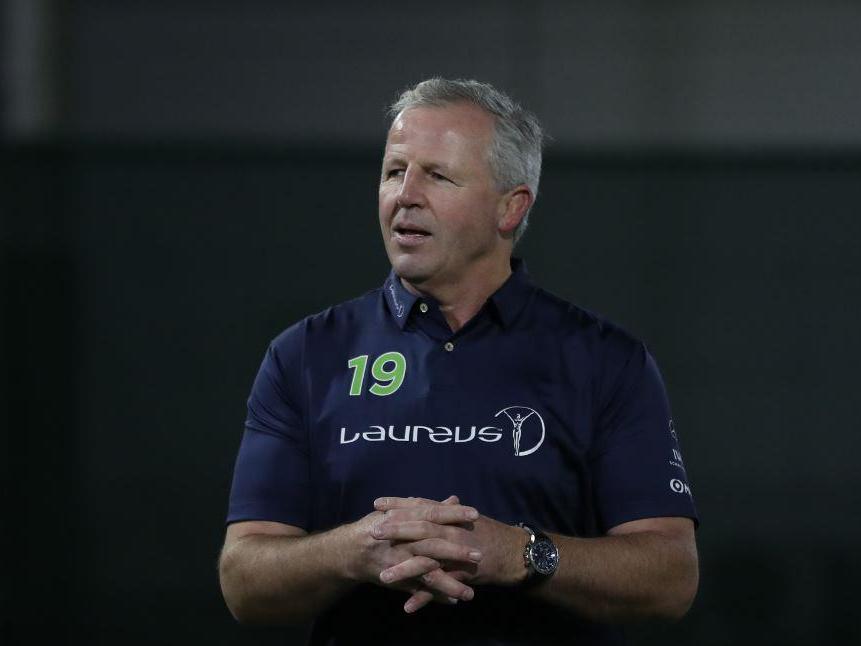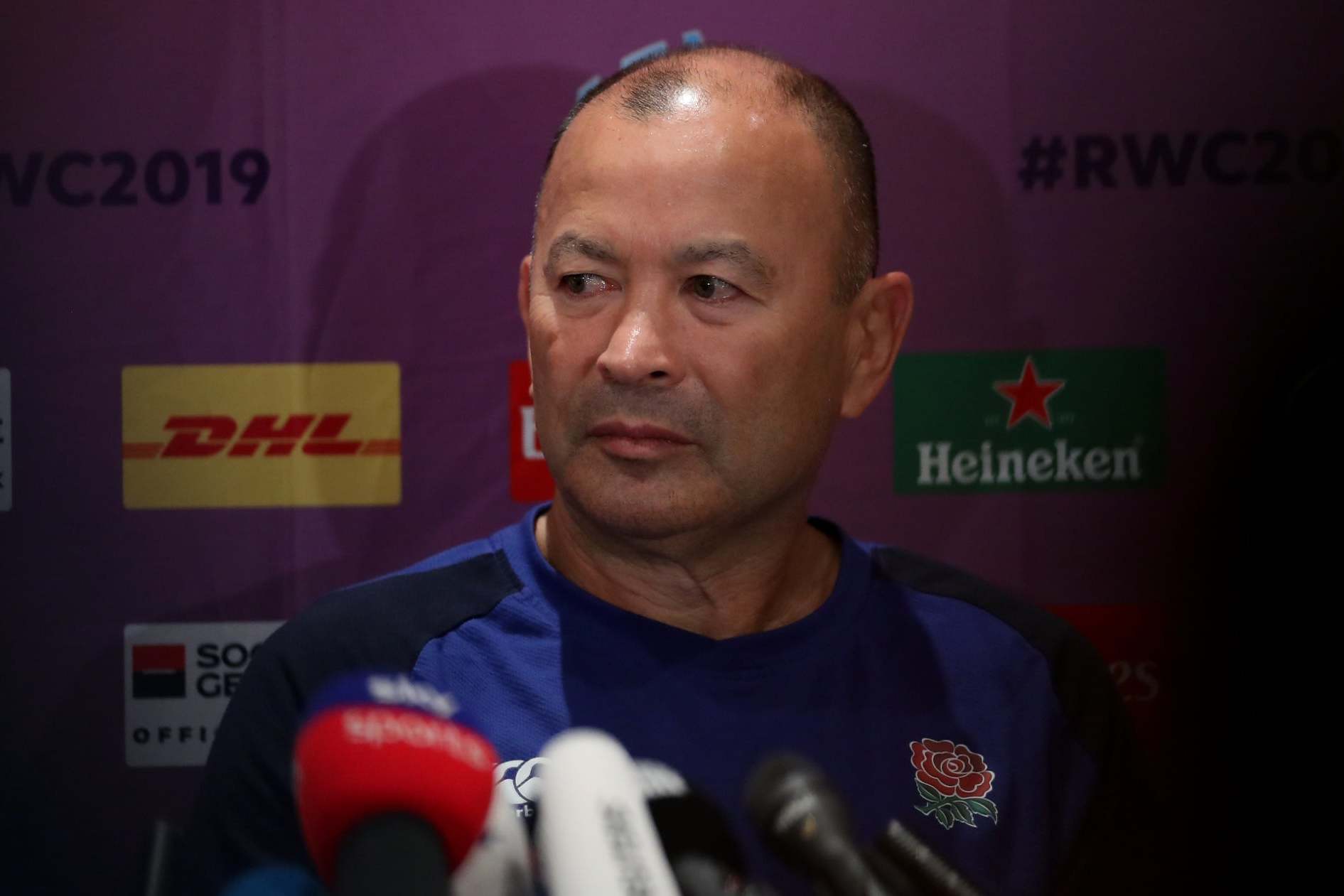Sean Fitzpatrick on England, the All Blacks and winning the World Cup and going back to work the next day
Exclusive: The former All Blacks captain remembers a different time when international rugby was a part-time job

Your support helps us to tell the story
From reproductive rights to climate change to Big Tech, The Independent is on the ground when the story is developing. Whether it's investigating the financials of Elon Musk's pro-Trump PAC or producing our latest documentary, 'The A Word', which shines a light on the American women fighting for reproductive rights, we know how important it is to parse out the facts from the messaging.
At such a critical moment in US history, we need reporters on the ground. Your donation allows us to keep sending journalists to speak to both sides of the story.
The Independent is trusted by Americans across the entire political spectrum. And unlike many other quality news outlets, we choose not to lock Americans out of our reporting and analysis with paywalls. We believe quality journalism should be available to everyone, paid for by those who can afford it.
Your support makes all the difference.According to reports, if England win the Rugby World Cup final on Saturday then a victory parade has been planned to take place in central London the following week, ending in Trafalgar Square. There will be a visit to 10 Downing Street, a blizzard of honours and garlands and awards, a bonus pool of £2.5 million to be dished out. When Sean Fitzpatrick won the 1987 World Cup with New Zealand, meanwhile, the celebrations were a little more restrained.
“I went back to work on the building site on the Monday,” he says. “In those days, that was your job. Win the World Cup, and then go back to work.”
It was a different time, of course: almost a different world. When the inaugural World Cup was first proposed, there were no guarantees of success. The Home Nations were staunchly opposed. “I don’t think we understood what the World Cup was about then,” Fitzpatrick says. “I don’t think there were too many sponsors. The Northern Hemisphere didn’t really want it. Now it’s just turned into this amazing tournament. Every World Cup’s got better and better.”
Plenty has changed in the three decades since the All Blacks’ triumph in 1987, but some things have not. The expectation on New Zealand to conquer all before them is as resounding and as uncompromising as it ever was. And as a veteran of three World Cups, and now a respected broadcaster and pundit, Fitzpatrick understands why their semi-final defeat to England last Saturday will have created such shockwaves, even if he stops short of describing it as a crisis.
“I didn’t see that performance coming,” he admits. “Everyone’s hurting, and the All Blacks more so than anyone. They just couldn’t get into the game. I was happy when it was only 10-0 at half-time. Considering the way the game was going, it could have been 30 or 40 points. That’s how dominant England were.
“They’ll learn. That’s the great thing about the All Blacks. They’ll go away, they’ll be hard on themselves. But they’ll have to put that aside as a bad day at the office. We’ve got the talent. They’re still world-class players. Losing one game, it’s not going to define us.”
In many ways, the All Blacks are now reaping the consequences of their own excellence. Having raised the bar for everyone else, teams have finally managed to match their standards, and for Fitzpatrick – who has always taken a global rather than a parochial view on the game – it’s made 2019 the greatest tournament he can remember.
“That’s what I’ve loved about this World Cup,” he says. “We came to the quarter-finals and literally any one of those teams could have gone the whole way. Even Japan, who I don’t think anyone truly expected to be that competitive, but who have just set the tournament on fire. That’s what people want to see.

“In terms of Uruguay and Namibia, you’ve really seen the influence of World Rugby putting some money into them. What they need is to play the top teams more often. Let’s not just say: ‘Thanks for coming to the party, see you in four years’ time’. The global game is so important. We need to not just think about ourselves.”
And at the end of a gruelling, gripping tournament, an intriguing final that Fitzpatrick is far too wise to call one way or the other. Where he can offer an insight is what goes through the minds of a team in the build-up to the biggest game of their lives. How do you prepare? How do you cope with the pressure? How do you raise your game again after – in England’s case – a cataclysmic, life-changing semi-final?
“It’s interesting, I was speaking to Sir Clive [Woodward] about it yesterday,” Fitzpatrick says. “In 1995, we completely dominated England in the semi-final, and then six days later [in the final against South Africa] we didn’t perform. There’s been lots of World Cups where that’s happened. France in ‘87. The All Blacks in ’95. France again in ’99. The coaches and the staff have got a lot of work to do to make sure the guys are prepared.
“It’s not easy to back up that performance. Especially after everyone expected the All Blacks to win. Now it’s flipped on its head, and everyone’s expecting England to win. How they deal with that expectation, how they embrace it, will be interesting to see. They’ve just got to go about their normal routines. Make sure all the players know exactly how the game’s going to be played.”

A couple of days before the 1995 final at Johannesburg, disaster struck the All Blacks camp when most of the squad went down with food poisoning. After a meek and depleted New Zealand lost the final 15-12 in extra time, all sorts of elaborate conspiracy theories rose to the surface. Claims of sabotage were manifold but never conclusively proven. The finger of blame was pointed at a mysterious waitress called “Suzie”. A quarter of a century on, Fitzpatrick is none the wiser.
“We never found her,” he says. “What happened? I don’t know. All I know is we definitely had food poisoning. I think it was the tea. But it’s old news. There’s a good book by Peter Fitzsimmons that tells you everything you need to know. You should read it.”
Nefarious poisonings aside, Fitzpatrick reckons that this year’s final will be an attritional affair. “I don’t see South Africa playing the game any differently to the last month or so,” he says. “They’ve shown the way they want to play: shutting it down, kicking a lot. That can work.”

Nevertheless, he’s been extremely impressed by Eddie Jones’s men. “England can play a multifaceted game,” he says. “They’ve redefined their game, in terms of their running, the way their props play. That’s not traditionally the way England plays. Their three knockout games will be against Australia, New Zealand and South Africa. If they can win all three, they’ll be deserved world champions.”
Time, then, for this decorated World Cup-winning captain to stick his neck out. “It could go either way,” he reckons. “It could come down to a kick in the last minute of the game. England have got an opportunity. They’ve got the players. I suspect they’ll be favourites. But then, I said the All Blacks would win on Saturday…”
Sean Fitzpatrick was joined by Laureus Ambassadors Nolli Waterman and Ai Sugiyama on Monday at a special visit that united two Laureus programmes through the power of rugby. Laureus supports Special Olympics Nippon Tokyo to promote social inclusion and empower young women and girls using sport. During the session, Special Olympics athletes were introduced to rugby by leaders from ChildFund Pass it Back, another programme Laureus supports in Asia.
Join our commenting forum
Join thought-provoking conversations, follow other Independent readers and see their replies
Comments